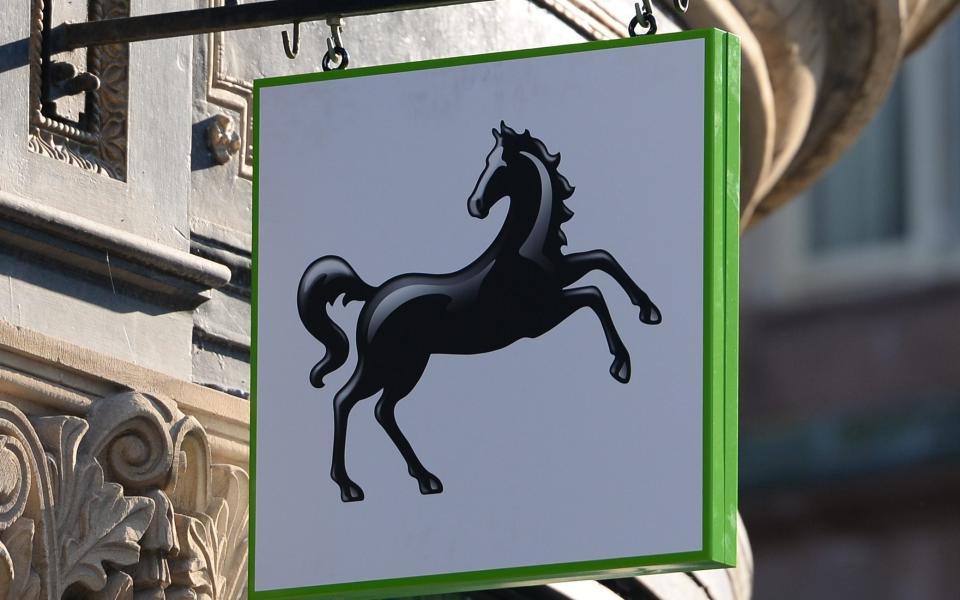Lloyds has shrunk itself back to health and appeals to income hunters and value seekers alike

No sign of deposit flight, no sign of any unexpected deterioration in the loan book and no sign of any egregious risk-taking – and still no interest from the market.
Shares in Lloyds slid lower after what were perfectly solid first-quarter results, despite the absence of any of the factors that are doing so much to hole confidence in America’s banking system, but we shall exercise patience and continue to hold the stock.
Lloyds’ first-quarter profit actually exceeded analysts’ expectations, with a 45pc surge in pre-tax income to £2.3bn. That was also the best single three-month result the bank has generated since it started to report results quarterly, rather than only on an interim and final basis, back in 2012.
Deposits slipped by just £2bn to £473bn in the first three months of 2023. The current US crisis is one of liquidity and deposit outflows, rather than solvency and whether asset valuations are sufficient to cover liabilities, so even the American situation does not feel like 2008.
That said, solvency and liquidity are inter-linked as a liquidity problem can force asset sales at almost any price, and any losses on those fire-sales then start to question solvency, but none of the “big five” FTSE 100 banks is showing major outflows.
Loan impairments, litigation and restructuring – items that have cost the bank £43bn since January 2013 compared with stated pre-tax income of £41bn over the same period – came to just £274m as the bank kept its nose clean.
Yes, bad loan costs rose to £243m from £177m in the first three months of last year, but an impairment ratio of 0.22pc was lower than historic norms and management’s expectation of 0.30pc for 2023 as a whole. Nothing that investors saw in the first quarter means the consensus estimates for 2023’s full-year loan impairments are too low and the bank’s common equity tier 1 ratio of 14.1pc suggests it is well placed to absorb such losses without undue discomfort.
Meanwhile, risk-weighted assets (RWA) were flat at £210bn and no higher than they were in the equivalent three-month period in 2018. Risk-weighted assets totalled £303bn a decade ago. Lloyds has, in effect, shrunk itself back to health, unlike the American regionals, some of whom have got themselves into terminal trouble by embracing risk and growing assets at a rapid rate.
The key source of disappointment among investors seems to be the absence of earnings forecast upgrades, as Lloyds left prior guidance unchanged, particularly when it came to the issues of net interest margin and loan losses.
Expansion in the former is expected to slow after a rapid advance in 2022, even though the Bank of England may yet take the headline base rate of interest to 5pc from 4.25pc, according to current consensus estimates.
But this makes sense for three reasons. First, there is competition between banks (and also from National Savings & Investments), especially as interest rates rise and savers and borrowers shop around for the best deals. Second, no bank executive will wish to face accusations of excessive profiteering from the regulator or the wider public.
Finally, the outlook for rates, inflation and the economy is undeniably unclear – even if certain parts of the global stock markets are doing their best to pretend otherwise – and it would be a brave chief executive who wanted to raise expectations now and potentially make a rod for their own back later in the year.
As such, the first-quarter statement appears a little dull, but that feels a like a significant improvement on what investors are accustomed to seeing from banking stocks. Healthy earnings should support the ongoing share buyback programme and the increased dividend expected by consensus analysts’ forecasts.
That payout in turn forms part of Lloyds’ attractions on a valuation basis, too. The forecast 5.8pc dividend yield may well appeal to income hunters, while value seekers will also note how the shares trade on a lowly price-to-earnings ratio and at a discount to the quarter-end tangible net asset, or book, value per share figure of 49.6p.
Such a rating should help to protect the downside in the event anything does go wrong and offer upside if Lloyds can keep churning out around £2bn a quarter in profits. Were Lloyds to consistently achieve a double-digit return on tangible equity, then a premium to book value is by no means out of the question.
Lloyds’ yield and valuation should help to underpin the shares.
Questor says: hold
Ticker: LLOY
Share price at close: 45.81p
Russ Mould is investment director at AJ Bell, the stockbroker
Read the latest Questor column on telegraph.co.uk every Sunday, Tuesday, Wednesday, Thursday and Friday from 6am.
Read Questor’s rules of investment before you follow our tips

 Yahoo Finance
Yahoo Finance 